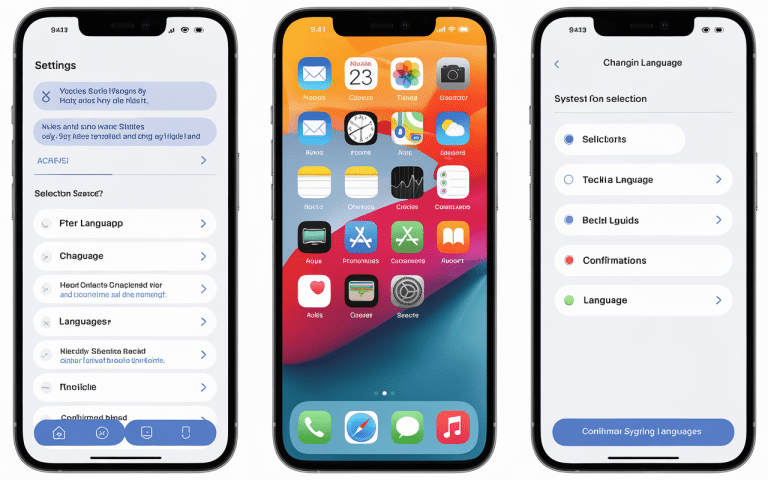Translate Creole to English: Language Conversion Guide
I’ve always been drawn to the variety of ways people communicate worldwide. Haitian Creole translation helps connect cultures worldwide. As a vital Caribbean language, Creole reflects unique traditions and ways of life. Let me show you how English-Creole translation services can break down language barriers and bring people together.

Key Takeaways
- Discover professional document translation services for seamless Creole to English conversions.
- Utilize digital tools and resources to enhance your Creole to English translation abilities.
- Familiarize yourself with common Creole phrases and their English equivalents.
- Master Creole pronunciation and phonetics to communicate effectively.
- Leverage advanced translation techniques for handling complex Creole texts.
Understanding the Origins and Evolution of Creole Language
Haitian Creole mixes words from French, English, Spanish, Portuguese, and African languages to form its own special language. This creole to english converter helps showcase how languages adapt and grow through cultural exchange.
Historical Development of Creole Dialects
Creole languages have a fascinating origin story. Many emerged as simplified “pidgin” forms of European colonial languages.
The majority of Creole languages known today arose in the last 500 years. This was due to the worldwide expansion of European maritime power and trade during the Age of Discovery. These Creole languages can be broadly categorized into Atlantic Creoles, with roots in African and Amerindian languages, and Indian Ocean Creoles, influenced by Malagasy and other Asian languages.
Influence of French and African Languages
Creole languages borrow heavily from dominant European languages, such as French, English, Spanish, or Portuguese. But they often develop unique sound systems and grammatical structures that differ from their source languages. These Creole languages have become integral to the cultural and linguistic identity of their respective regions.
Essential Fundamentals of Creole Grammar
Creole is a language that has a simple yet rich grammar. At its heart are three key pronouns: li (he/she/it), nou (we), and ou (you).
Creole verb forms are easy to understand. Affixes are added to verbs to show action. This makes Creole a great language for creole to english converter and haitian creole translation tasks.

Learning Creole’s basics is the first step. Focus on pronunciation, sentence structure, and common words. This way, you can quickly get good at this exciting language.
- Pronouns: li, nou, ou
- Verb Affixes: Expressing Action
- Sentence Structure: Subject-Verb-Object
- Pronunciation: Consonant Sounds and Vowels
- Common Vocabulary: Greetings, Expressions, and Daily Activities
Knowing Creole’s key parts lets you master creole to english converter and haitian creole translation skills. It opens a door to cultural exchange and deeper understanding.
Document Translation Services for Creole to English
Need your Haitian Creole documents translated to English? Expert translation services provide accurate results every time. They work with many file types and documents carefully and accurately.
Supported File Formats and Document Types
Our creole document translation handles all file types – Word files, XML, and more. From personal papers to business deals, we translate it accurately.
Professional Translation Workflow
The translation process is smooth and efficient. It starts with a detailed check of the document. Then, experts who speak both Creole and English translate it. Finally, the translation is checked for accuracy and consistency.
Quality Assurance Measures
- Certified translations with a signed and stamped certificate of accuracy
- 100% acceptance guarantee for government agencies and institutions
- Secure document handling with encryption and controlled access
- Active client review and feedback during the translation process
- Preservation of document integrity, including illegible handwriting or complex layouts
These quality checks ensure your Creole to English translations are top-notch. You can rely on them for accuracy and success in your projects.
Digital Tools and Resources for Translate Creole to English
In today’s digital world, many tools and resources help translate Creole to English. You can find everything from detailed dictionaries to special software. These tools make translating easier and more accurate.
Biread is a great tool for Creole language interpretation. It supports over 130 languages, including Haitian Creole, and makes cross-language communication effortless. With Biread, you can utilize its bilingual display feature, making it an ideal solution for creole interpretation tools and creole to english converter tasks. It ensures accurate translations through its Expert Translator, powered by AI for multilingual translation support. Whether you’re translating websites, documents, or even everyday conversations, Biread offers seamless translation and efficient communication across languages.

Biread has expanded its capabilities with a range of AI-driven tools that are perfect for enhancing your haitian creole localization tasks. The platform offers tools like bilingual subtitles for video content and Learning Mode for improving language skills, perfect for anyone working with Creole in an international context.

Biread Product
Translation options
- Free Version: Basic translation support using Google Translate
- Premium Version: Enhanced translation with ChatGPT-powered AI
Features
- Bilingual Display
- Learning Mode
-
Bilingual Subtitles
- Expert Translator tailored for Creole languages
For online creole interpretation tools and creole to english converter needs, Biread is a robust and reliable option for individuals and businesses alike. It offers excellent tools to overcome language barriers with ease.
Using these tools and resources, you can easily translate Creole to English. This opens up new chances for talking, working together, and sharing cultures.

Common Creole Phrases and Their English Equivalents
Exploring Haitian Creole can open doors to understanding different cultures. This guide helps you learn common phrases and their English meanings. It covers everything from simple greetings to professional terms and cultural sayings, making communication easier.
Everyday Greetings and Expressions
Learn basic Haitian Creole greetings: “Bonjou” means hello, “Bonswa” is good evening, and “Bònn nui” means good night. Also, learn phrases like “Mwen konprann” (I understand) and “Dezole” (sorry).
Business and Professional Terminology
Knowing business terms in Haitian Creole is key for work. Key work-related Creole translations: “travay” means work, “kontra” means contract, and “salè” means salary. Use these for better workplace communication.
Cultural Idioms and Sayings
Get to know common Haitian Creole phrases: “Mwen renmen w” translates to “I love you.” Fun fact: Creole has many unique expressions worth learning. The guide also covers phrases for special times, like “Bon voyage” for a good journey.
| Haitian Creole Phrase | English Equivalent |
|---|---|
| Bonjou | Hello |
| Bonswa | Good evening |
| Bònn nui | Good night |
| Mwen konprann | I understand |
| Mwen pa konnen | I don’t know |
| Dezole | Sorry |
| Travay | Work |
| Kontra | Contract |
| Salè | Salary |
| Mwen renmen w | I love you |
| My hovercraft is full of eels | Humorous phrase |
| Bon voyage | Have a good journey |
| Kote twalèt la? | Where’s the toilet/bathroom? |
Mastering Creole Pronunciation and Phonetics
Understanding creole language interpretation and haitian creole localization starts with mastering Creole pronunciation and phonetics. Creole’s phonetic system is simple yet can be tricky for those new to it. Its unique rhythm and flow are key to grasping the language.
Creole is known for blending sounds together. For example, “mwen” (meaning “me” or “my”) is pronounced smoothly, unlike the English version. Getting these sounds right is crucial for clear creole language interpretation and communication.
Creole also places stress differently than French. In Creole, stress falls on the last syllable, unlike French’s second-to-last syllable. This rhythm is part of what makes Creole unique and can take time to get used to for English speakers.
| Creole Pronunciation Characteristics | Examples |
|---|---|
| Blending of Sounds | “Mwen” (me/my) pronounced as a single syllable |
| Stress on Final Syllable | “Lavni” (the future) stressed on the last syllable |
| Intuitive Spelling-to-Sound Correlation | “Chire” (to tear) pronounced as spelled |
Learning these core phonetic aspects is key to becoming fluent in creole language interpretation and haitian creole localization. With practice and listening to native speakers, you can master Creole’s unique sounds and rhythms.
Advanced Translation Techniques for Complex Texts
Translating complex Creole texts to English is more than basic language skills. It needs advanced techniques for context, nuances, and idioms. These skills are key for english-creole translation services and cross-language communication to get translations right.

Context-Based Translation Methods
Good Creole to English translation is not just word-for-word. It needs understanding of the culture and situation of the text.
Handling Idiomatic Expressions
Creole is full of idiomatic expressions, hard to translate directly. Translators must know the language well to get these phrases right. They find expressions in the target language that match the original’s spirit, not just the words.
Navigating Cultural Nuances
Creole language and culture are closely linked. Translations must reflect these cultural subtleties. Translators need to understand the connotations, references, and assumptions in the text. This ensures translations are not just right but also culturally fitting.
Learning these advanced techniques is vital for top-notch english-creole translation services and cross-language communication. By using context, handling idioms, and understanding culture, translators can share complex Creole texts beautifully in English.
Conclusion
More people need Creole-to-English translation every day. Online platforms and software have popped up to help. They make it easy to translate text, documents, or web pages. Companies like Stepes and Translate.com offer services in many languages.
These tools are great for simple translations. But, they have limits. Machine translation, while getting better, can miss the fine details of Creole. For important translations, like legal or medical, human translators are best. They ensure accuracy and understand the context.
Still, online tools are useful for creole to english converter tasks. They offer fast and easy solutions for many multilingual translation support needs. As technology advances, we’ll see more options for translating Creole to English.
FAQ
What are the key grammar and pronunciation aspects of Creole?
This section gives an overview of Creole grammar and morphology basics. It explains the simplified structure of Creole, including pronouns and verb affixes. It also addresses the unique pronunciation aspects of Creole.
What document translation services are available for Creole to English?
This section talks about document translation services from Haitian Creole to English. It lists supported file formats and discusses the professional translation workflow. It also covers quality assurance measures for accurate translations.
What digital tools and resources are available for Creole-to-English translation?
This section explores digital tools and resources for Creole-to-English translation. It covers comprehensive Creole dictionaries, online translation tools, and specialized software. The importance of combining multiple tools for accurate translations is emphasized.
How can I master Creole pronunciation and phonetics?
This section focuses on mastering Creole pronunciation and phonetics. It addresses the slurring of certain sounds in Creole. It provides guidance on mastering these pronunciations for accurate interpretation and translation.
What advanced techniques are used for translating complex Creole texts to English?
This section covers advanced techniques for translating complex Creole texts to English. It discusses context-based translation methods and strategies for handling idiomatic expressions. It emphasizes the importance of understanding cultural nuances in translation.
What online translation platforms and software options are available for Creole-to-English translation?
This section explores online translation platforms and software options for Creole-to-English translation. It discusses their capabilities and limitations. It highlights their role in providing quick translations while acknowledging the superior accuracy of professional human translators.
Source Links
- Exploring the World of Creole Languages: Origins, Evolution, and Significance – https://www.dynamiclanguage.com/exploring-the-world-of-creole-languages-origins-evolution-and-significance/
- Details about the Creole Languages – Origin – History – Translation – https://translateswift.com/languages/creole/
- “Translate Creole to English Accurately: Expert Guide!” – https://blog.lingoedit.com/learn-how-accurately-translate-creole-english-practical-guide/
- 52+ Creole Basic Words: Your Best Guide to Essential Vocabulary – The Talk List – https://thetalklist.com/creole-basic-words/
- Useful phrases in Haitian Creole – https://www.omniglot.com/language/phrases/haitiancreole.php
Simplify your multilingual experience with BiRead.
Translate smarter and break barriers today.
Try Biread Free





